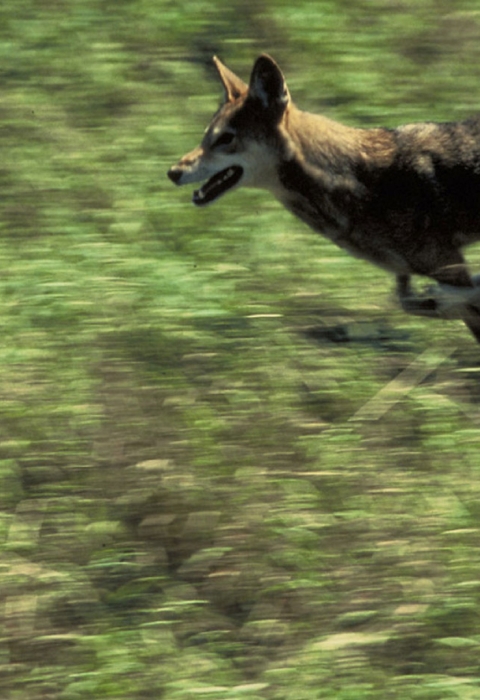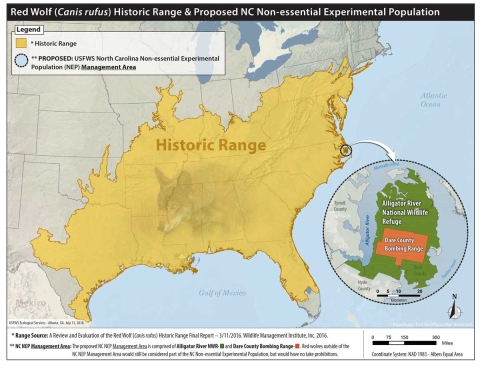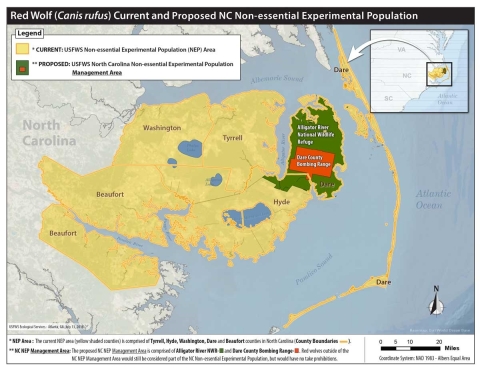More than 30 years ago, the U.S. Fish and Wildlife Service and its partners began efforts to reintroduce the endangered red wolf into the wild in North Carolina. While many of the captive-bred wolves adapted well to a wild environment, the program faced unforeseen challenges, including hybridization of wolves with coyotes and conflicts with humans. After initially increasing, the population plateaued and then declined. Today, only approximately 35 wild wolves remain, with a further 200-plus wolves in captive breeding facilities.
In an effort to adaptively manage to the challenges confronting the red wolf, the Service is proposing a rule that would remove management efforts from existing private lands and instead focus continuing efforts on certain public lands in Hyde and Dare counties, North Carolina. The new proposed rule is based on a comprehensive four-year evaluation of the “nonessential experimental population” (NEP) of red wolves designated under section 10(j) of the Endangered Species Act.
“By restricting management to Alligator River National Wildlife Refuge and the Dare County Bombing Range, we will ensure we can better reduce external threats and monitor the environments surrounding these wild wolves,” said Greg Sheehan, the Service’s Principal Deputy Director. “A recent Species Status Assessment informed us that past strategies were not effectively leading to recovery, so we believe that a concerted effort in a managed area will help.”
The Service’s role outside the proposed management area would be limited to providing technical assistance if requested by landowners.
Under this new proposal, there would be no prohibitions on the take of red wolves on non-federal lands outside the NEP area, provided the take occurs in conjunction with an otherwise lawful activity.
Public meeting
A public meeting was held from 5:30 p.m. to 9 p.m. on July 10 at Roanoke Festival Park in Manteo, North Carolina, to gather public input about the proposed 10(j) rule, and assess how any proposed changes to the management of red wolves in North Carolina may affect both red wolves and the residents of the area.
>
Comment period
The public comment period is part of a 30-day process that begins with the publication of the proposed 10(j) rule and the associated draft Environmental Assessment in the Federal Register for public comment on June 28, 2018, and will continue through July 30, 2018. The Service will consider all comments on the proposed 10(j) rule and draft Environmental Assessment that are received or postmarked by that date. Information on how to comment can be found at regulations.gov under docket number FWS-R4-ES-2018-0035.
All comments are posted on regulations.gov, including any personal information you provide. To increase efficiency in downloading comments, groups providing mass submissions should submit their comments in an Excel file.
For more information visit the red wolf species profile.






